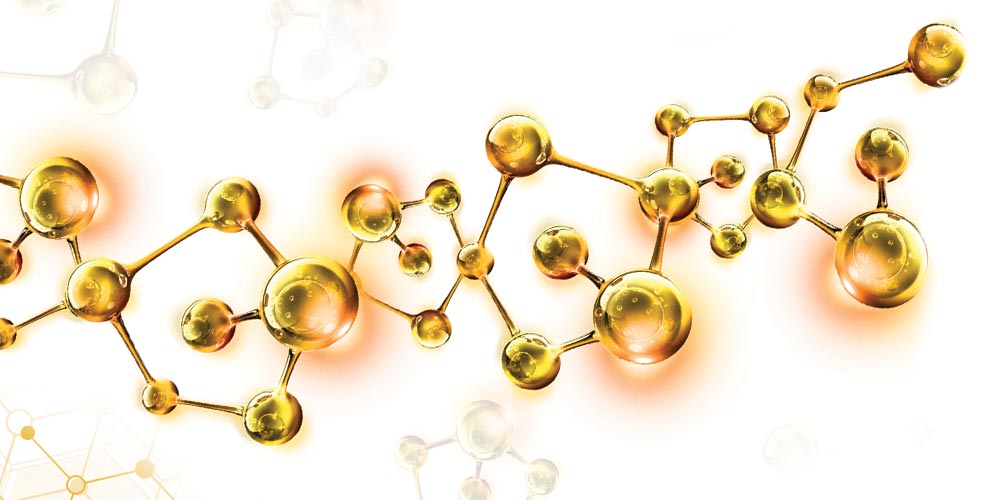
At Lifespan, we specialise in producing premium Marine Collagen from the pristine coastal waters of New Zealand.
Our advanced hydrolysis process ensures the highest quality of sustainably sourced fish collagen, which forms the core of our renowned RevitaCOL® Marine Collagen Powder. This vital ingredient is integral to our collagen supplements, celebrated for enhancing skin, hair, nails, and joint health. Our commitment to purity and sustainability in every capsule and skincare product we offer brings the natural benefits of marine collagen directly to you.
Recent posts

About the Author
Ben Winters, a prominent member of the Lifespan team, plays a crucial role in the development of high-quality marine collagen supplements. His extensive expertise spans from sustainable sourcing in New Zealand's pure waters to innovative processing techniques. Ben's hands-on involvement ensures the exceptional quality of Lifespan's RevitaCOL® Marine Collagen, renowned for its beneficial properties for skin, hair, nails, and joints. His deep engagement in every step of the process, from sourcing to production, not only signifies his dedication to excellence but also equips him with valuable insights. These insights are eloquently shared in his blog posts, making them a treasure trove of information for those seeking effective natural health and wellness solutions.

How Collagen Works in the Body
By Ben Winters
Collagen is a protein that forms the building blocks of various tissues within our bodies and is an essential component for the health and integrity of our joints and connective tissue.
Within our skin, bones, tendons, joints, connective tissue, blood vessels, and digestive system, collagen acts as a glue holding everything together, ensuring strength and elasticity where needed.
There are numerous types of collagen, each with specific roles and derived from different sources:
Type 1: Primarily found in our skin, tendons, organs, and bones, this type is essential for the skin's structure and maintaining bone health.
Type 2: Concentrated in cartilage, this type is crucial for joint health and flexibility.
Type 3: Often associated with type 1, this collagen type is found in our skin, blood vessels, and internal organs, ensuring their elasticity and structural integrity.
Others: While types 1, 2, and 3 constitute the majority of collagen in our bodies, there are up to 28 known types, each serving different functions.
Collagen works in the body through a complex interplay of digestion, absorption, and utilisation.
When we consume collagen-rich foods or supplements, our stomach and digestive enzymes break down the collagen into amino acids and peptides. These are the smaller components of proteins that our body can more easily absorb.
Once broken down, these amino acids and peptides enter the bloodstream through the small intestine, making their way to target areas like the skin, bones, and joints.
Once in the bloodstream, these collagen-derived peptides signal the body to synthesise new collagen. For the skin, this means improved hydration, which supports skin elasticity. The amino acids also contribute to producing other proteins like elastin and fibrillin, both factoring in skin's texture and appearance.
For joints, the amino acids act as building blocks, assisting in the repair and maintenance of cartilage. This helps support joint health and flexibility.

As we age, our body's collagen production naturally diminishes.
Starting in our mid-to-late 20s, we lose about 1% of our collagen each year. This decline manifests in the form of sagging skin, fine lines, weaker nails, and more fragile hair. Joint discomfort or stiffness may become more apparent as the cushioning cartilage degrades.
This natural decline underscores the importance of supplementing with collagen or maintaining a diet rich in collagen sources to support our skin and joint health as we age.
Collagen is not just a structural component; it is also important for ensuring the smooth movement of our joints.
Found in the synovial fluid, which fills the space between joints, collagen provides essential lubrication to reduce friction between bones. This natural lubrication mechanism helps protect the joints from wear and tear, especially during strenuous activities or repetitive movements.
The presence of collagen in synovial fluid acts like oil in a machine, ensuring joints move freely and comfortably. When collagen levels decline, the consistency of this fluid can change, leading to stiffness and potential discomfort.
Cartilage, the flexible connective tissue found in areas like our nose, ears, and most vitally, between our joints, heavily relies on collagen for its structural integrity.
Collagen fibres make up a significant portion of cartilage, offering it strength and resilience. As we age or undergo physical stress, cartilage can begin to wear down.
Collagen assists the body in its natural repair process. When damage occurs, the body increases its collagen production in an attempt to mend the damage.
Additionally, collagen provides essential nutrients to the chondrocytes, the cells responsible for maintaining cartilage health. By ensuring a consistent supply of collagen, we support the ongoing repair and maintenance of this vital joint cushioning, reducing the risk of joint ailments and ensuring longevity in joint function.
Skin elasticity and hydration rely on collagen.
Collagen is often likened to the scaffolding of our skin, providing it with structure, firmness, and resilience. Its fibrillar network supports skin cells and ensures they're taut and bouncy. As we move, smile, frown, or express any emotion, our skin stretches and contracts.
This flexibility without permanent deformation is largely attributed to the abundance of collagen in the dermal layer of the skin. Additionally, collagen plays an instrumental role in skin hydration because of its ability to bind water molecules, ensuring the skin remains moisturised.
A well-hydrated skin not only appears plump and radiant but is also less prone to develop fine lines or cracks. In essence, collagen acts as a natural moisturiser, retaining water within the skin, which contributes to its soft and supple texture.
Ageing is an inevitable process, and one of its most visible signs is the appearance of wrinkles and saggy skin.
Collagen, due to its structural role, directly impacts the skin's youthful appearance. As we age, the production of collagen naturally decreases. This reduced synthesis, coupled with external factors like UV radiation, pollution, and lifestyle choices, can accelerate collagen degradation.
The skin starts losing its elasticity and firmness, leading to the formation of wrinkles and fine lines. Furthermore, as the collagen network weakens, the skin loses its natural support, leading to sagging, especially around the jawline, neck, and cheeks.
By supplementing with collagen or using skincare products enriched with it, we can help counteract these effects, promoting skin firmness and reducing the appearance of ageing.
Therefore, collagen supplementation, especially as we get older can be beneficial to our physical health owing to its support of bone health, joints, tendons, connective tissue, skin, hair and nails.


